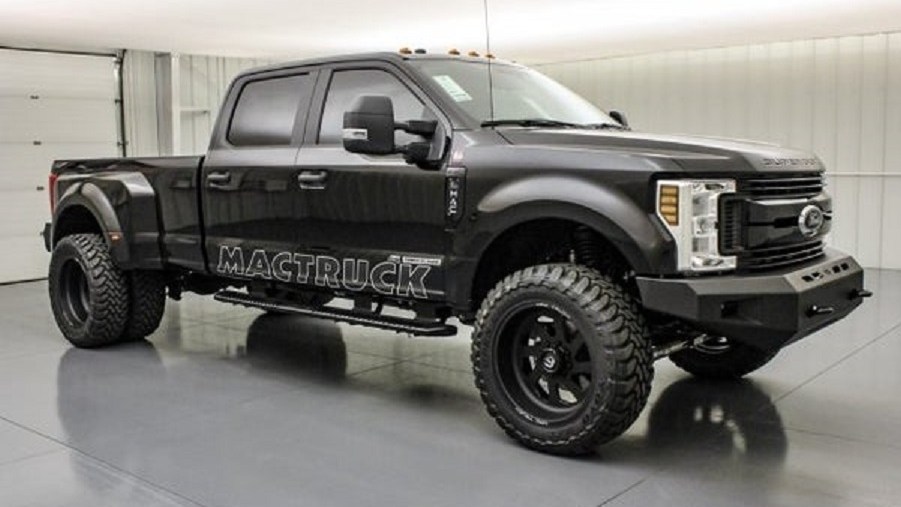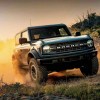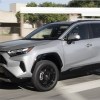
The Pros and Cons of Bigger Truck Wheels
One of the most important things to improve before taking your truck off-roading is ground clearance. This keeps your truck’s underbody—and all its mechanical components—from hitting big rocks and other obstacles. In addition, as factory off-roaders like the Chevrolet Colorado ZR2 demonstrate, adding ground clearance improves approach and departure angles, letting the truck crawl over more extreme terrain. Things like portal axles and lift kits can increase ground clearance, although some owners take lift kits too far. But one of the most popular ground clearance mods is fitting bigger wheels. Many off-road truck builds, both OEM and aftermarket, feature larger-than-standard wheel sizes. But unless you’re a serious overlander, you should consider the pros and cons before fitting a bigger truck wheel.
The benefits of bigger wheels
Fitting larger wheels is a staple off-roading modification for a reason. Larger wheels do lift a truck higher into the air, increasing ground clearance. But the increase in wheel size has additional benefits.
A larger wheel means larger tires can be fitted to the truck. And large tires do help a truck handle better on dirt and gravel, and even with on-pavement braking. There’s more rubber coming into contact with the ground, after all. And according to Diesel Tech, these larger tires can improve your truck’s towing capability.

Fitting larger wheels to your truck can also improve it in other ways. In an interview with GM Authority, Brembo NA President and CEO Dan Sandberg mentioned a discussion he had on his podcast with GM Design Chief Michael Simcoe. Both Sandberg and Simcoe agreed that wheels can have a large impact on a vehicle’s aesthetics. Simcoe also added that large-diameter wheels and tires make any vehicle look “lower, longer, wider.”
And although Sandberg didn’t discuss this, a larger wheel could affect braking performance. As Engineering Explained and Car Throttle discuss, increasing a brake rotor’s size is one way to decrease braking distance. And fitting a larger wheel means the larger rotor can fit on your truck.
But bigger wheels do have several disadvantages.
The downsides of big wheels
The most obvious is the price. Bigger wheels cost more, both to install and replace if they get damaged. But just like the benefits of bigger truck wheels add on, so do the downsides.
Many manufacturers offer optional up-sized wheels. In fact, Simcoe mused to GM Authority that wheels could get up to 26” in diameter. But to offer any wheel-and-tire option, manufacturers have to design suspensions with a specific combined diameter. Offering a bigger wheel means the tire’s sidewalls have to get thinner, as Autotrader, Cars.com, and Performance Plus Tire explain. And these big wheels and thin tires mean your truck’s ride gets worse (and noisier). There’s less of an air cushion between you and the road. This also means your tires and wheels are easier to damage.
This can be countered by increasing the tire’s sidewall, which is often the case for off-road tires. But that can cause more problems. For one, this can throw off your speedometer, odometer, and tire-pressure sensors unless you recalibrate them. Secondly, these bigger wheels and tires add weight. Not only does this lower fuel economy, per one Car and Driver test, but both NAPA and Consumer Reports warn that it puts extra strain on your suspension and brakes. Especially if you don’t take advantage of the extra room and fit larger rotors.
Finally, there’s the question of fit. If you fit bigger wheels on your truck so you can fit bigger tires, Wheelfire recommends also installing a lift kit. But this can make several issues even worse. Not only does it add cost, but lifting the truck even higher also raises its center of gravity. With the additional grip from the tires, this raises the risk of tipping over.
Do I need bigger truck wheels?
Most of the benefits of bigger truck wheels are specific to off-roading. So, if you aren’t planning on hitting the dirt, bigger wheels are mostly just about the look. But considering the day-to-day downsides, they’re not really worth it.
Follow more updates from MotorBiscuit on our Facebook page.


